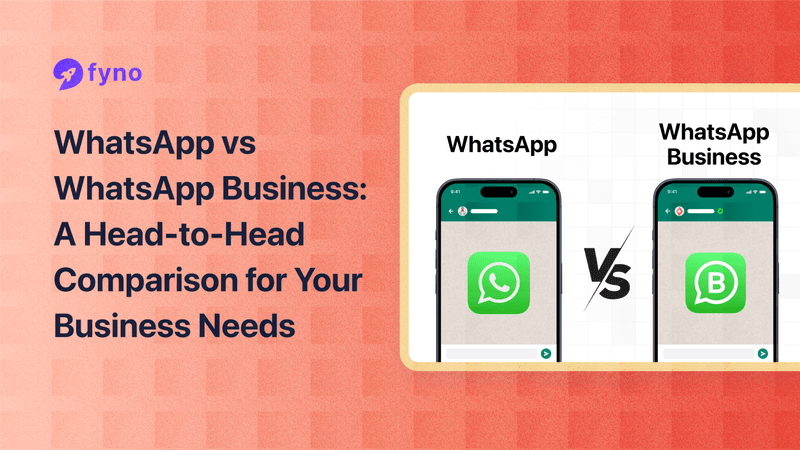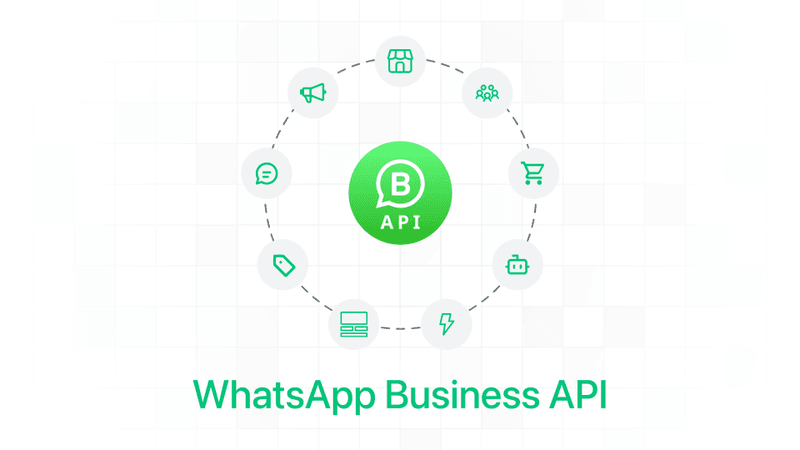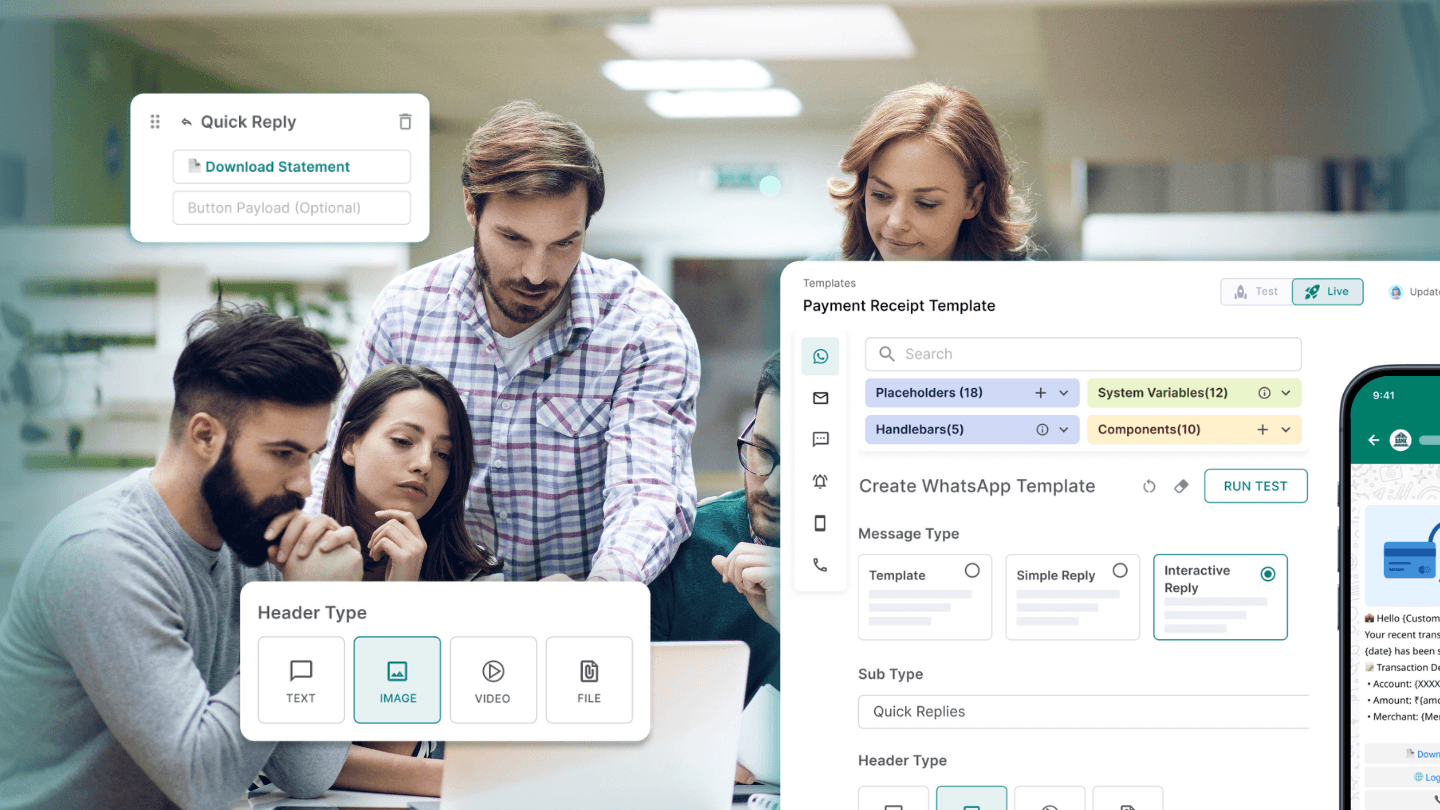WhatsApp, a staple for personal communications with over two billion monthly active users, offers seamless messaging and calling worldwide. Conversely, WhatsApp Business, designed specifically for businesses, enhances engagement through features like business profiles, automated messages, and analytics, which provide significant business benefits.
These platforms cater to different needs; while WhatsApp facilitates everyday communication, WhatsApp Business gears towards improving business-client interactions, providing tools essential for managing customer relationships effectively.

What is WhatsApp Business?
WhatsApp Business is designed as a separate business app from the regular WhatsApp, catering specifically to businesses’ needs. This distinction allows companies to manage customer communications effectively without mixing personal and professional messages.
The app offers a suite of features tailored for business use. For instance, businesses can create a professional profile with essential information such as the business address, email, and website. This makes it easier for customers to find and contact them.
Another key feature is the ability to set automated responses. Businesses can use this function to send instant replies to common questions or inform customers of their business hours, enhancing customer service efficiency.
Additionally, WhatsApp Business provides valuable metrics. Companies can track messaging statistics, such as the number of messages sent, delivered, and read. This data is crucial for improving communication strategies and ensuring customers receive timely and relevant information.
Key differences and similarities – WhatsApp Business vs. WhatsApp
Feature | WhatsApp | WhatsApp Business |
|---|---|---|
Intended Audience | Primarily for personal use | Designed specifically for businesses |
Usage | Casual communication with friends and family | Manage customer interactions and provide business information |
Profile Setup | Personal profile with basic information | Professional business profile with detailed business information such as hours, location, and services |
Messaging Features | Standard messaging, voice, and video calls | All standard features plus automated messages, quick replies, labels for organizing chats, and greeting messages |
Automation and Tools | Limited to basic communication | Features like away messages for off hours, catalog for showcasing products, and tools for managing customer inquiries |
Connectivity | Single user per account on multiple devices | Multiple users can manage a single business account, suitable for team collaboration |
Cost | Free | Free with optional paid features via WhatsApp API for advanced functionalities |
Business Optimization | Not applicable | Tools like product catalogs, customer labels, and automated responses enhance customer service and business operations |
Customer Interactions | Limited to personal communication | Enhanced interactions through features like business profiles, catalog displays, and quick responses to FAQs |
Scalability | Best for individual use | Scalable solutions for businesses of all sizes through the WhatsApp API |
Setting up your WhatsApp Business account
1. Steps to download and set up WhatsApp Business
Starting with WhatsApp Business is straightforward, and it aims to enhance customer interactions.
First, download the free to download app from your preferred app store. It’s free, making it accessible for businesses of all sizes.
Upon installation, follow the on-screen instructions to set up your profile. This includes basic details like your business name, description, and contact information. Accurate information is crucial for establishing trust with your customers.
2. Importance of a separate business phone number
Using a separate phone number for your Whatsapp business account is vital. This segregation ensures you maintain professional boundaries and helps organise your business communications efficiently. It also allows for features like automated messages and quick replies, essential for responsive customer support.
With a dedicated business number, you can effectively use WhatsApp's business tools, enhancing customer experience and business operations.
Core features of WhatsApp Business
Understanding the core features of WhatsApp Business is crucial when choosing the best platform for customer communication. This specialized version offers Business Profiles, Labels, and Auto-Replies designed to enhance customer interactions.
A Business Profile allows companies to provide vital details like contact information, business hours, and a brief description, making your business more accessible and professional to users. Businesses can use automated WhatsApp messages to send instant replies to common questions or inform customers of their business hours.
1. Labels
Organize your chats and customer interactions efficiently with labels. This feature allows you to categorize conversations, making them easier to retrieve and follow up on, which is crucial in customer relationship management.
2. Auto-replies
Set up automatic responses for common questions or greetings. This feature ensures that your customers receive immediate attention, even when you're not available, thus improving your response rate and customer satisfaction.
3. Advanced tools:
Catalog: Showcase your products or services directly on WhatsApp. This not only saves time for your customers but also speeds up the decision-making process.
WhatsApp Business offers a mix of free and paid features designed to enhance business operations.
Broadcast lists: Send messages to multiple customers at once without them knowing who else received the message. This is ideal for announcements or promotions.
Added advantages of WhatsApp Business
WhatsApp Business isn’t just about messaging. It offers significant advantages that can transform how you connect with your customers:
End-to-end encryption: All messages are secured with end-to-end encryption, ensuring that only you and your customer can read what is sent without any interception from third parties. This is crucial for maintaining confidentiality, especially in financial services and logistics.
Data backup: Automatic backups are essential for preserving your chats and business data, recovering important information, and maintaining continuity in your communications.
Multi-platform compatibility: Access your business account from multiple devices, including your smartphone, tablet, or computer. This flexibility enhances your ability to manage communications more effectively, ensuring that you can respond promptly no matter where you are.
WhatsApp Business tools enable businesses to manage customer interactions efficiently, enhancing customer experience through more responsive customer support.
WhatsApp Business API
The WhatsApp Business API is a pivotal tool for businesses aiming to scale their operations efficiently. Designed for larger enterprises, this API facilitates seamless integration with existing systems, paving the way for automated workflows and enhanced customer interaction.
Its robustness is evident in its ability to support various functions, from mass messaging to sophisticated customer service solutions.

Features of WhatsApp Business API
The WhatsApp Business API offers an array of features designed to streamline communication and enhance customer interaction, making it a robust WhatsApp Business platform. These features are especially valuable in sectors like BFSI and logistics. Let’s explore some key functionalities that make this tool indispensable for businesses.
Automated responses: One of the WhatsApp Business API’s standout features is its ability to automate responses. This functionality not only ensures immediate engagement with customers but also improves efficiency by handling common inquiries automatically.
For instance, automated greetings and quick replies can provide instant answers to frequently asked questions, reducing wait times and enhancing the customer experience.
Integration with internal systems: The API seamlessly integrates with existing business systems, such as CRM software or customer support platforms. This integration enables a unified view of customer interactions and automates data synchronization across systems.
For a logistics company, this means real-time updates on shipments and deliveries can be communicated instantly to customers, enhancing transparency and trust.
Rich media support: The API supports sending images, videos, and documents in addition to text. This feature particularly benefits banks and financial institutions that must send detailed documents securely and efficiently.
For example, sending loan approval documents or policy details directly through WhatsApp can streamline operations and provide a better user experience.
Global reach: WhatsApp’s widespread adoption, with over two billion users worldwide, makes it a powerful tool for businesses to reach an international audience.
This is especially useful for e-commerce businesses in logistics, where communication with customers across different regions is crucial.
Advanced analytics: The API provides detailed analytics on message delivery and engagement. This data helps businesses understand customer behaviour better and refine their communication strategies accordingly.
Use cases of WhatsApp Business API
Enhanced customer support: Enterprises can leverage the API to offer real-time customer support. Automated messages can handle common inquiries instantly, while complex issues are escalated to human agents, ensuring that customer needs are addressed promptly and efficiently.
Streamlined marketing communications: The API enables businesses to send targeted marketing messages and updates. For example, a logistics company can inform customers about shipment statuses automatically, reducing the need for manual updates and enhancing the customer experience.
Efficient operational communications: By integrating the WhatsApp Business API, financial institutions can automate their notification systems for transactions and services. This not only reduces operational delays but also enhances security by providing timely updates directly to the customer’s phone.
Setup and pricing
Setting up the WhatsApp Business API involves a straightforward registration process, yet it requires adherence to specific protocols to ensure data security and compliance.
While the API is free to download, the pricing model is typically usage-based. This means businesses only pay for the messages sent and received, making it a cost-effective solution for high-volume communications.
Fyno and WhatsApp Business: Enhancing communication solutions
As a Meta tech partner, Fyno helps businesses avoid the complexities of working directly with a Business Service Provider (BSP), reducing overall costs and simplifying communication workflows.
Conclusion
When deciding between WhatsApp and WhatsApp Business, it's crucial to consider your specific business needs. WhatsApp Business offers enhanced features like business profiles, automated messaging, and customer analytics, tailored for improving business communication and efficiency.
These tools help streamline customer interactions, making WhatsApp Business the ideal choice for businesses aiming to optimize their customer engagement and operational workflows.
FAQs
1. What is the main difference between WhatsApp and WhatsApp Business?
WhatsApp is designed for personal communication, while WhatsApp Business is tailored for business use, offering features like business profiles, automated messaging, and analytics to enhance customer engagement and communication efficiency.
2. Can I use the same phone number for both WhatsApp and WhatsApp Business?
No, you need to use a different phone number for WhatsApp Business to keep personal and professional communications separate. This helps in managing business interactions more efficiently.
3. What are the benefits of using WhatsApp Business for my company?
WhatsApp Business provides several benefits, including the ability to create valuable customer connections through professional business profiles and automated responses, access messaging statistics, and manage customer interactions more effectively.
4. Is WhatsApp Business free to use?
Yes, WhatsApp Business is free to download and use. However, if you opt for the WhatsApp Business API for larger-scale operations, there may be costs based on usage.
5. How do automated responses work on WhatsApp Business?
Automated responses in WhatsApp Business allow you to set predefined messages for common questions or greetings, ensuring customers receive immediate replies even when you are not available, improving customer satisfaction and response times.
6. Can I integrate WhatsApp Business with other systems?
Yes, the WhatsApp Business API can be integrated with existing business systems such as CRM software, enabling automated workflows, unified customer interactions, and efficient communication management.



